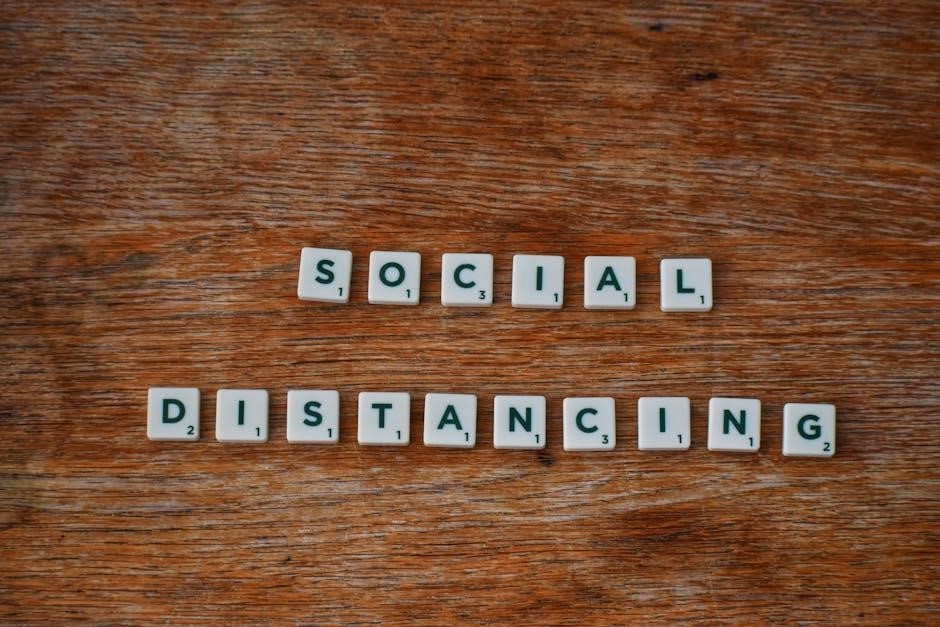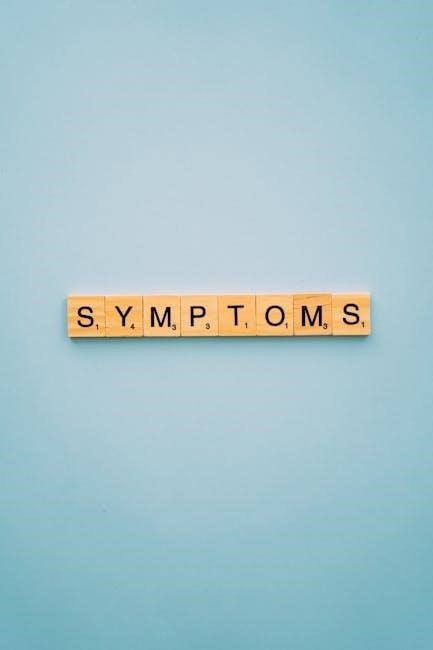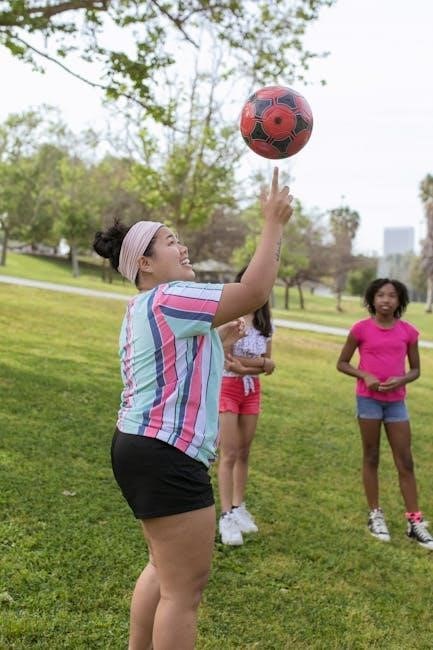Mental health games and activities offer engaging ways to promote emotional well-being, reduce stress, and foster resilience. These tools are designed to make learning about mental health fun and accessible, encouraging open conversations and skill-building in a supportive environment.
1.1 Importance of Playful Approaches in Mental Health
Playful approaches in mental health are vital as they make complex topics accessible and engaging. Games and activities reduce stigma, fostering open conversations and emotional literacy. They encourage self-care, resilience, and empathy, creating a safe space for individuals to explore their emotions. Playful methods are particularly effective in educational settings, helping children and adolescents develop healthy mental health habits from an early age.
1.2 Overview of Mental Health Games and Activities
Mental health games and activities encompass a wide range of tools designed to promote emotional well-being. From interactive exercises to creative projects, these resources help individuals develop self-awareness, cope with stress, and build positive relationships. They include worksheets, role-playing scenarios, and group exercises, all aimed at making mental health education engaging and effective for diverse audiences, including children, adolescents, and adults.
Mental Health Games for Younger Children
Mental health games for younger children focus on fostering emotional literacy and peer support through interactive activities. These games help kids express feelings and build connections, promoting mental well-being from an early age.
2.1 Emotional Literacy and Peer Support Activities
Emotional literacy and peer support activities help children recognize, express, and manage emotions. Games like role-playing and group discussions encourage empathy, fostering supportive relationships. These activities teach kids to communicate feelings effectively and understand others’ perspectives, building a foundation for strong mental health and social connections from an early age.
2.2 Connecting Physical Wellbeing to Mental Health
Physical activities, such as exercise and movement-based games, play a crucial role in enhancing mental health. Regular exercise releases endorphins, improving mood and reducing stress. By incorporating physical games into daily routines, children develop a holistic understanding of wellbeing, linking physical health to emotional resilience and overall mental stability from an early age.
Group Activities for Mental Health Awareness
Group activities, like the Fishbowl Game, foster connections and empathy, encouraging open conversations about mental health. These interactive exercises help reduce stigma and promote understanding.
3.1 The Fishbowl Game for Workplace and School Settings
The Fishbowl Game is a dynamic activity that fosters meaningful dialogue and connection in workplaces and schools. Participants engage in structured discussions, with some in an inner circle sharing thoughts on mental health topics while others observe. This setup encourages empathy, reduces stigma, and promotes a deeper understanding of mental health challenges in a supportive environment.
3.2 Team-Building Exercises and Role-Playing Scenarios
Team-building exercises and role-playing scenarios are effective tools for enhancing mental health awareness. These activities encourage collaboration, empathy, and communication while addressing real-life challenges. Participants engage in structured roles to simulate conversations about stress, anxiety, and support, fostering a sense of unity and understanding in both educational and professional settings.

Nature-Based Activities for Mental Wellbeing
Nature-based activities promote mental wellbeing by fostering relaxation and connection to the environment. Programs like Green Social Prescribing highlight their positive impact on mental health outcomes.
4.1 Outdoor Games and Their Impact on Mental Health
Outdoor games significantly enhance mental wellbeing by reducing stress and improving mood; Activities like team sports, nature walks, and scavenger hunts promote social interaction and emotional resilience. Green Social Prescribing programs highlight how nature-based exercises foster a sense of calm and connection, boosting overall mental health outcomes for individuals of all ages.
4.2 Green Social Prescribing Programs
Green Social Prescribing Programs connect individuals with nature-based activities to improve mental wellbeing; These initiatives, often led by professionals, include gardening, outdoor exercises, or group nature walks. By fostering a sense of calm and connection to the environment, these programs reduce stress and anxiety, promoting long-term mental health benefits and community engagement.
Creative Activities for Self-Care
Creative activities like art, crafting, and journaling offer engaging ways to express emotions and relax. These tools make self-care fun and accessible, enhancing mental well-being effectively.
5.1 Art and Craft Projects for Emotional Expression
Art and craft projects provide a healthy outlet for emotions, enabling individuals to express feelings creatively. Activities like drawing, painting, or collaging help reduce stress and anxiety, fostering mindfulness. These projects encourage self-reflection and personal growth, making them valuable tools for mental health support and therapeutic settings.
5.2 Mindfulness Exercises Through Playful Means
Mindfulness exercises are transformed into engaging activities through playful approaches, making them accessible and enjoyable. Guided games, interactive apps, and creative tasks encourage present-moment awareness, reducing stress and improving focus. These methods cater to all ages, fostering emotional regulation and calm while promoting a positive mindset through fun, relatable experiences.

Downloadable Mental Health Worksheets and Resources
Explore free PDF worksheets, journal prompts, and activity cards designed to support emotional health. These resources are easily accessible and offer practical tools for self-care and growth.
6.1 Free PDF Worksheets for Emotional Health
Free PDF worksheets are invaluable tools for emotional health, offering structured exercises to identify and manage emotions. They include activities like mood trackers, gratitude logs, and coping strategy planners; These resources are designed for individuals, educators, and therapists, providing accessible ways to promote mental well-being and self-awareness in various settings. Downloadable and user-friendly, they cater to diverse needs and ages.
6.2 Journal Prompts and Group Therapy Cards
Journal prompts and group therapy cards are excellent tools for fostering emotional expression and reflection. They provide guided questions to explore feelings, reduce stress, and improve communication. These resources are ideal for classrooms, group therapy, or personal use, offering structured activities to enhance self-awareness and interpersonal connections. They are versatile, engaging, and effective for promoting mental health and well-being in diverse settings.

Physical Activity and Mental Health
Physical activity significantly impacts mental health by reducing stress, improving mood, and enhancing overall well-being. Regular exercise fosters resilience and emotional balance, benefiting individuals of all ages.
7.1 Incorporating Exercise into Daily Routines
Regular physical activity, such as walking, yoga, or group sports, can significantly improve mental health. Simple exercises incorporated into daily routines reduce stress, boost mood, and enhance overall well-being. Even short sessions of 20-30 minutes can make a difference, promoting emotional balance and energy levels. Making exercise a habit fosters resilience and supports long-term mental health benefits for individuals of all ages.
7.2 Benefits of Sports and Movement-Based Games
Sports and movement-based games enhance mental health by reducing stress, improving mood, and boosting self-esteem. Physical activity stimulates endorphins, which act as natural mood elevators. Team sports foster social connections and a sense of community, while individual activities promote self-discipline and personal achievement. These games provide a healthy outlet for emotions and can be adapted to suit various ages and abilities, making them a versatile tool for mental well-being.

Mental Health Apps and Online Games
Mental health apps and online games offer gamified approaches to wellness, providing tools for stress reduction, mood improvement, and coping strategies through interactive and accessible platforms.
8.1 Gamified Approaches to Mental Health Apps
Gamified mental health apps use rewards, challenges, and progress tracking to engage users. Apps like Superbetter transform healthy habits into game-like tasks, fostering motivation and fun. These tools offer interactive exercises, quizzes, and achievements to encourage consistent use. By making mental health practices enjoyable, they help reduce stigma and promote daily wellness routines effectively for users of all ages and backgrounds.
8.2 Interactive Games for Adults and Students
Interactive games like Fishbowl and role-playing scenarios are popular in schools and workplaces. These games encourage connection, empathy, and open discussions about mental health. They provide a safe space for adults and students to explore emotions, reducing stigma and fostering understanding. Such activities are widely downloaded and used in various settings, making mental health education both engaging and impactful for diverse groups.
Implementing Mental Health Activities in Educational Settings
Schools are using toolkits like Classroom Mental Health to integrate activities promoting self-esteem and stress management. These resources help teachers create supportive learning environments, fostering mental well-being among students. Activities are designed to be classroom-friendly, making mental health education accessible and engaging for all ages. Visit Classroom Mental Health for more details.
9.1 Classroom-Friendly Mental Health Games
Classroom-friendly mental health games are designed to be both educational and enjoyable, helping students develop emotional literacy and coping skills. Activities like role-playing and group games encourage open discussions about mental health, fostering empathy and understanding. These tools are tailored to fit into school curricula, making mental health education a seamless part of daily learning experiences for students of all ages.
9.2 Integrating Activities into School Curricula
Integrating mental health activities into school curricula ensures students gain essential life skills alongside academic knowledge. Teachers can incorporate games, role-plays, and mindfulness exercises seamlessly into lesson plans. These activities not only enhance emotional well-being but also create a supportive classroom environment, fostering social connections and resilience among students. This holistic approach prepares students for lifelong mental health management and emotional intelligence.
